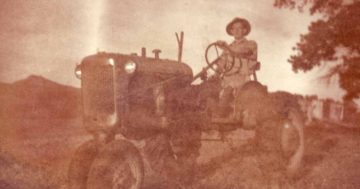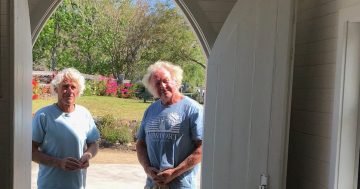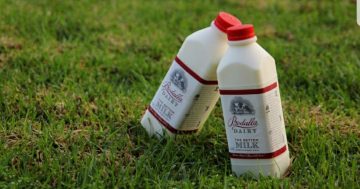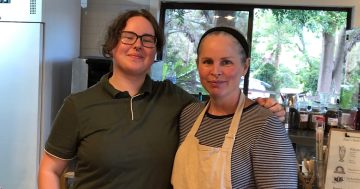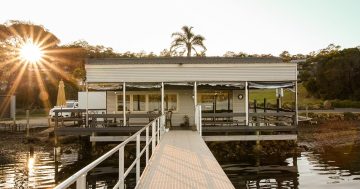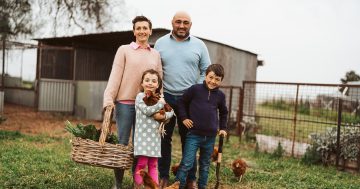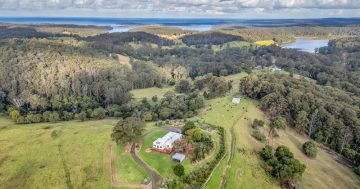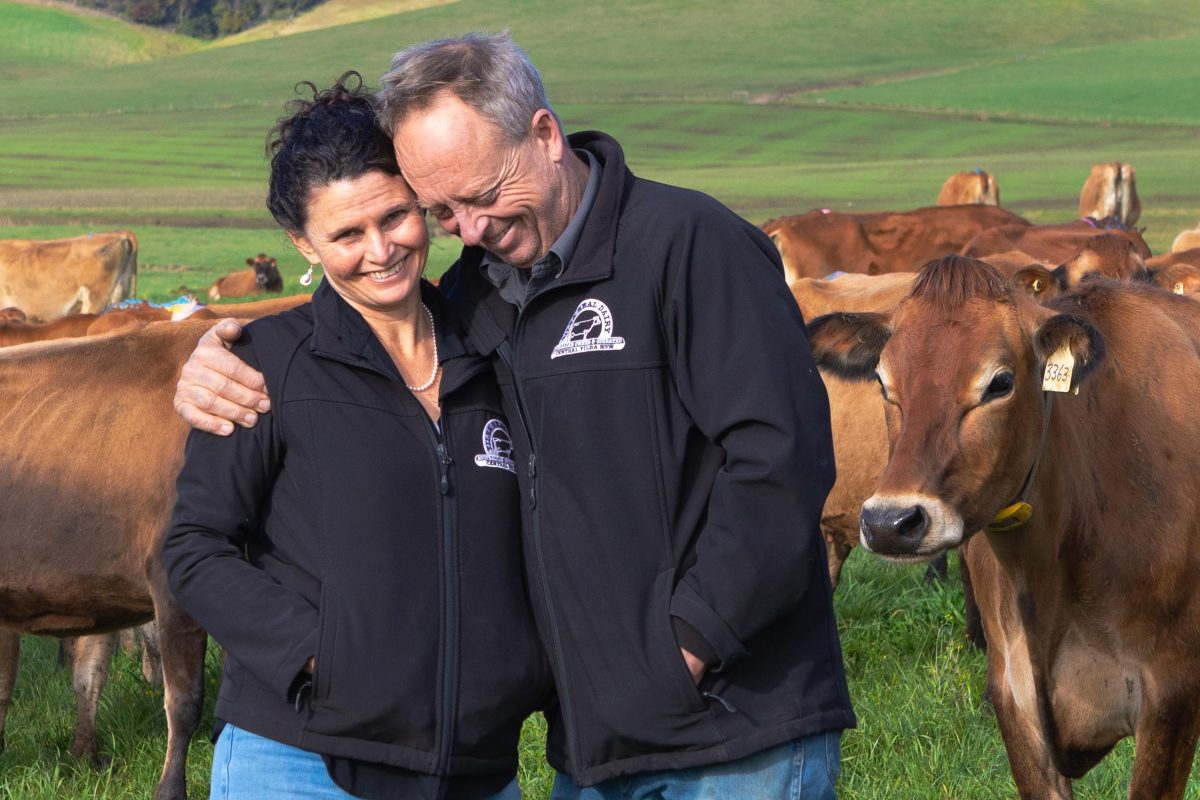
Erica and Nic Dibden have been dairy farming for 24 years. Photo: Supplied.
We like to think we know where our food comes from but compared with two or three generations ago, the link between us and our food is tenuous. Modern supply chains keep most types of fruit and vegetables in supermarkets year-round. The concept of seasonality is being lost.
Seasonality equally applies to dairy produce. The fat content of cow’s milk, for example, changes with the seasons and what food is available to them. It is a subject close to the heart of Tilba Dairy owner-operator Erica Dibden.
“Food is like a love story,” she says. “It is always changing. It moves and flows like the seasons.”
She and her husband Nic have 600 head of cattle although many of the cows have dried off for the moment. They have 600 acres on their farm and rent an additional 300 to 400 acres. “It takes a fair bit of land because you have to separate the different sets,” she says. There are the milking cows, the cows having a break, the younger heifers which are separated from the older ones that are put with the bulls, plus steers.
Tilba Dairy produces 1.5 million litres of milk annually. Combined with 1.5 million litres from a Cobargo farm, it processes three million litres each year. “We consider ourselves artisanal dairy producers, however we have to face the commercial reality and the fact that we are constrained by the limitation of our current factory site.”
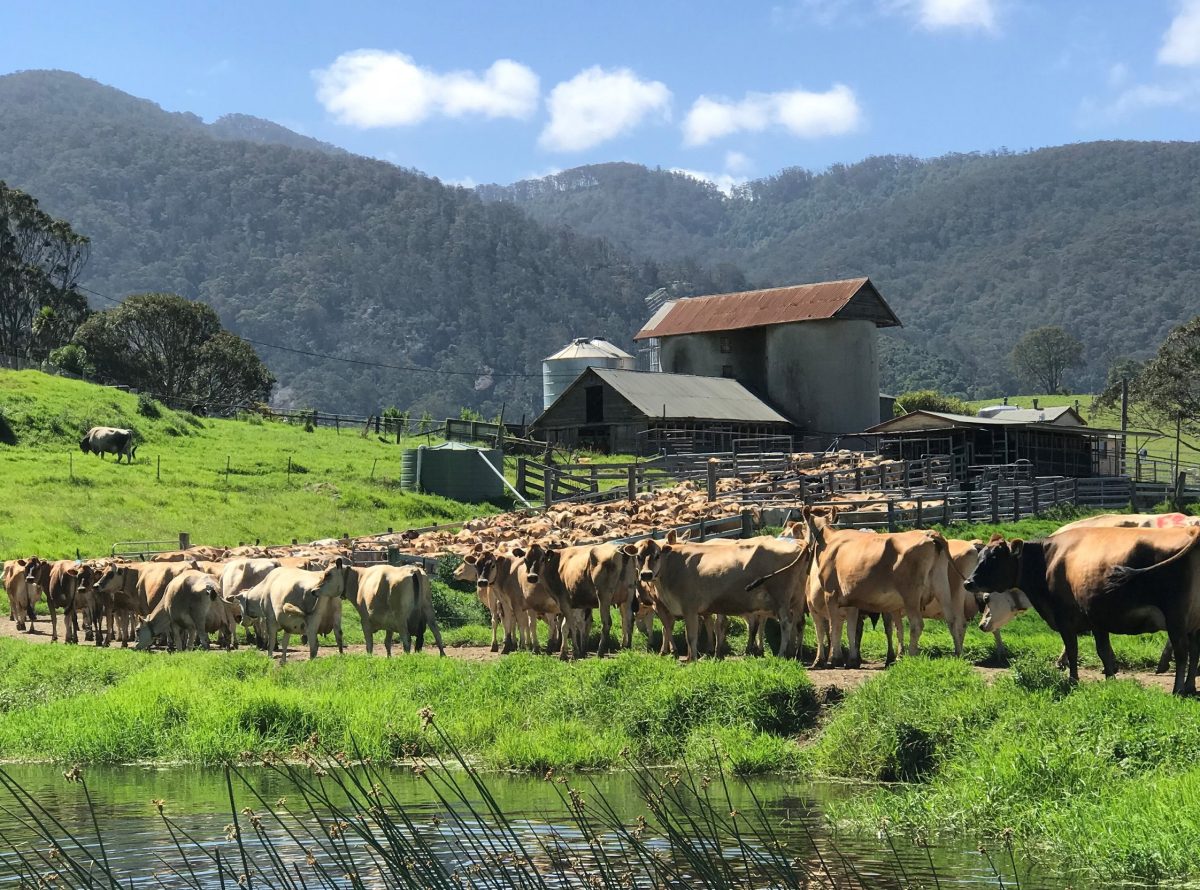
Produce from Tilba Dairy benefits from the humble Jersey cow, clean air from the ocean, rich volcanic soil and water from Mother Mountain Gulaga. Photo: Supplied.
Their most awarded products include full cream milk, low-fat milk and double cream, along with artisan cheeses like Bredbo black garlic cheddar, haloumi and Persian fetta. “We are very lucky our milk lends itself to those cheeses,” Ms Dibden says.
The milk in turn is a product of the “rich volcanic soils, beautiful clean air from the ocean, the water from Mother Mountain Gulaga, the humble Jersey cow and the intention”. They control and monitor the whole process. “We do not have any compromise in the chain from the soil to the consumer,” Ms Dibden says.
They have seen much change since they started dairy farming 24 years ago, including farm closures and consolidation. “When we started there were 150 suppliers to Bega Cheese with an average age of 65. Now I believe there are 35 to 40 suppliers.”
Consumer interest in and willingness to pay for locally produced food has also grown. “The market would not have been ready for us back when we started,” she says. “It is extremely expensive to produce. It is hands-on, small-scale and boutique.”
Despite the amount of effort that goes into harvesting milk and that many farmers do it out of pure passion, milk is considered a commodity.
If so, it is one in diminishing supply. “People aren’t expanding given land prices, difficulties getting staff, compliance issues and financial constraints,” Ms Dibden says. “A lot of our prime agricultural land is being turned into housing.”
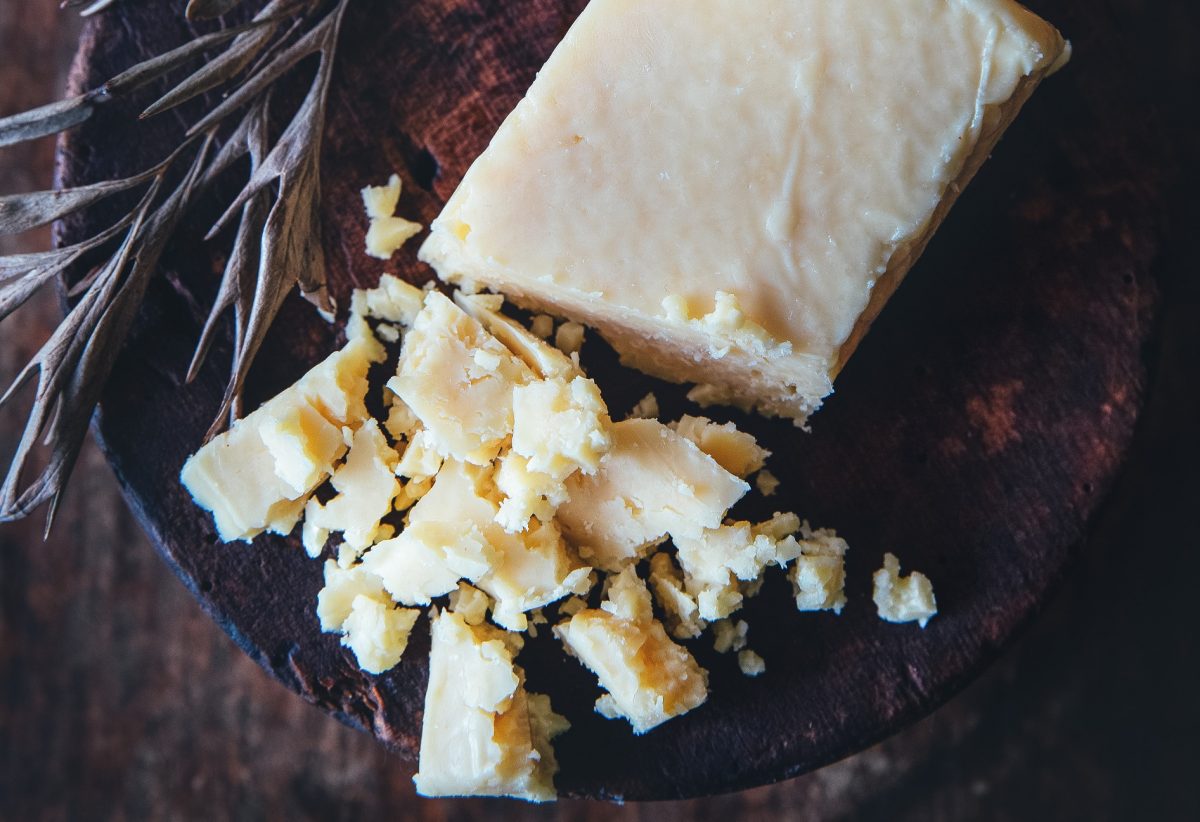
Tilba Dairy produces artisan cheeses such as its smoked vintage cheddar. Photo: Supplied.
That is one reason why Ms Dibden believes people should be thinking more about food security. For a few days during the Black Summer bushfires no trucks came to the Far South Coast to supply supermarkets. At times, empty supermarket shelves were commonplace around the country during the COVID pandemic.
“The social economics of having food produced locally is incredibly important for our long-term survival,” Ms Dibden says. “If there are problems within the global supply chain, how do we combat that as a community?”
Part of their expansion plans to take Tilba Dairy to the next level without compromising value and integrity include bringing other food producers under their brand to attract consumers “who are concerned about where their food comes from, that it is authentically produced, and is what it says it is”. That would also help protect the brands of smaller producers from being destroyed by big retailers.
“We are all about authentic, consistent, value-driven quality food but for that to be successful you need the public, your consumers, to see the value in that to support it,” Ms Dibden says. “People will pay $200 for a pair of boots but not $9 for a cauliflower. Yet if you have grown a cauliflower yourself, you know how much time it takes. I think cheap food comes at a very high price.”







